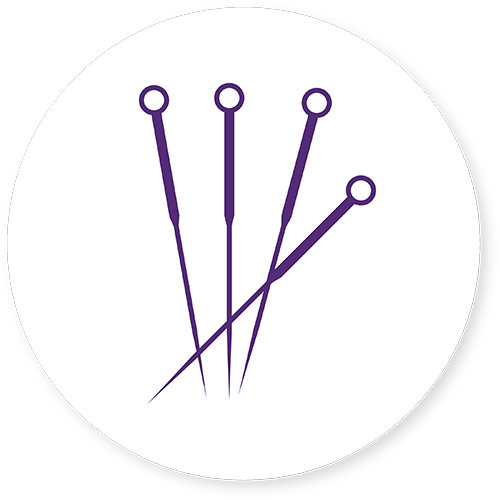ACUPUNCTURE
PHYSIOTHERAPY GLOUCESTER

What is ACUPUNCTURE?
Western medical acupuncture is a frequently used tool in a modern therapy setting. It involves inserting fine needles into the skin; it is an adaptation of traditional Chinese acupuncture using the growing understanding of anatomy, physiology and pathology, and the principles of evidence-based medicine which are key to modern physiotherapy practice. It is principally used by conventional healthcare practitioners, such as physiotherapists or GPs, most commonly in primary care. It is primarily used to treat musculoskeletal pain. It has also been shown in some studies to be effective for reducing postoperative pain and nausea.
How does Acupuncture work?
Western medical acupuncture is based on scientific evidence that shows the treatment can stimulate nerves under the skin and in muscles, causing pain-relieving substances such as endorphins to be released into the body, and reducing perceived pain.
Benefits Of Acupuncture
Acupuncture is used to treat a variety of health conditions. It is often used to treat pain conditions like headaches, lower back pain and osteoarthritis. The majority of patients find it very relaxing. There are forms of acupuncture used in an attempt to help people with conditions ranging from infertility to anxiety and asthma, however, these are often carried out in specialist settings.
Acupuncture is occasionally available on the NHS, although access can be limited. Most acupuncture patients pay for private treatment.
Does Acupuncture Work?
Currently, the National Institute for Health and Care Excellence (NICE) only specifically recommends acupuncture as a treatment option for chronic lower back pain, chronic tension-type headaches and migraines. NICE makes these recommendations on the basis of the strongest scientific evidence available at the time of publishing.
There is also evidence that acupuncture works for a small number of other problems, including neck pain and post-chemotherapy nausea and vomiting. Acupuncture is used for numerous other conditions as well, but the evidence is not conclusive and is largely based on the subjective opinion of the patients receiving the treatment.
Having Acupuncture…
When it is carried out by a qualified practitioner, acupuncture is generally very safe. Some people experience side effects such as feeling drowsy or dizzy, but these are usually mild and short-lived.
You should consider not planning any activities which are very strenuous physically or mentally for a short time after acupuncture treatment, to minimise the risks of ill effects occurring.
If you choose to have acupuncture, make sure your practitioner is either a regulated healthcare professional or a member of a recognised national acupuncture organisation.
Is Acupuncture Safe?
Acupuncture is safe when carried out by a suitably qualified practitioner, however, mild, short-lasting side effects do occur in some cases. These include:
- pain where the needles puncture the skin
- bleeding or bruising where the needles puncture the skin
- drowsiness
- feeling sick
- feeling dizzy or faint
- worsening of pre-existing symptoms (very rare)
Serious complications from treatment, such as infections or damage to tissue, are extremely rare. They usually only occur as the result of bad practice, carried out by an acupuncture practitioner who has not been properly trained.
Acupuncture carried out by Chartered Physiotherapists is very safe, as they are trained under strict guidance and regulated by their professional governing bodies.
The local authority must also ensure it has bylaws that govern the cleanliness of the acupuncture premises, practitioners, instruments, materials and equipment. Myself and my clinic are currently registered with Tewkesbury Borough Council to allow the practice of acupuncture.
Can Anyone Have Acupuncture?
Because of the slight risk of bleeding, people with bleeding disorders such as haemophilia, or people taking medication to prevent blood clotting (anticoagulants), may not be able to have acupuncture.
There are no age restrictions, though children under the age of 16 require consent from their parent/guardian to receive treatment.
If you have a blood disorder or are taking anticoagulants, talk to your GP before you have acupuncture.
Acupuncture is also not usually advised if you have a metal allergy or an infection in the area where needles may be inserted.
Before we start treatment, you will have the chance to discuss any underlying conditions you have or medication you are taking, as some of these may affect the treatment you can have.
It is generally safe to have acupuncture when you are pregnant. However, you should let me know if you are pregnant because certain acupuncture points cannot be used safely during pregnancy.
